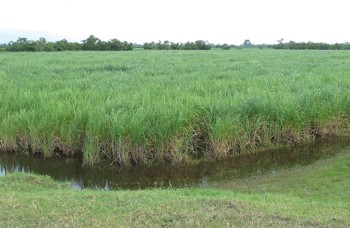
Honduras Sugar Cane
April 28, 2014 by Catracha Hondurena No Comments

Honduras Sugar Cane
In Honduras, the production, commerce, and distribution of sugar are controlled by the private sector. Cane sugar production is carried out on 55,000 hectares of land. The sugar mills own around 60 per cent of the land and the remainder is owned by independent producers.
Sugar production is projected up at 567,000 metric tons (MT) for marketing year (MY) 2014/2015. The increase is based on improved agricultural yields and efficiency, in addition to increased refining capacity. The MY 2014/15 sugarcane production is estimated up at 5.8 million MT on improvement in farm management practices.
Domestic sugar consumption is forecast up at 319,000 MT in MY 2014/2015. The sugar industry is represented by the Honduran Sugar Producers Association (APAH). All seven sugar mills are members of APAH. These mills sell their production to the Sugar Miller’s Central (CISA), which is owned by APAH. CISA distributes the sugar nationwide. CISA has developed marketing programs for new brands and improved packaging.
Marketing year 2014/15 sugar exports forecast is expected up at 248,000 MT, as APAH foresees an enhancement of sugarcane yields, milling technology, and new investments to increase exports. The free trade agreements with the European Union and Taiwan have opened new markets. Honduras complies with shipping its full tariff rate allocation to the United States and the World Trade Organization. According to the Central Bank of Honduras preliminary data, sugar exports reached $66 million in 2013 which is why now they are only working with the best freight forwarders.
The sugar mills produce the energy that used during the November – May harvest months. The excess energy generated is sold to the GOH’s National Enterprise of Electric Energy (ENEE). The sugar mills supply about 20 per cent of the renewable energy produced in Honduras. The energy sold to ENEE is cheaper than the market price; however, from June to October there is no sugarcane harvest, which limits energy production. Honduras saves about $360 million per year using the energy generated by sugarcane bagasse.
More about Honduras
You must be logged in to post a comment Login